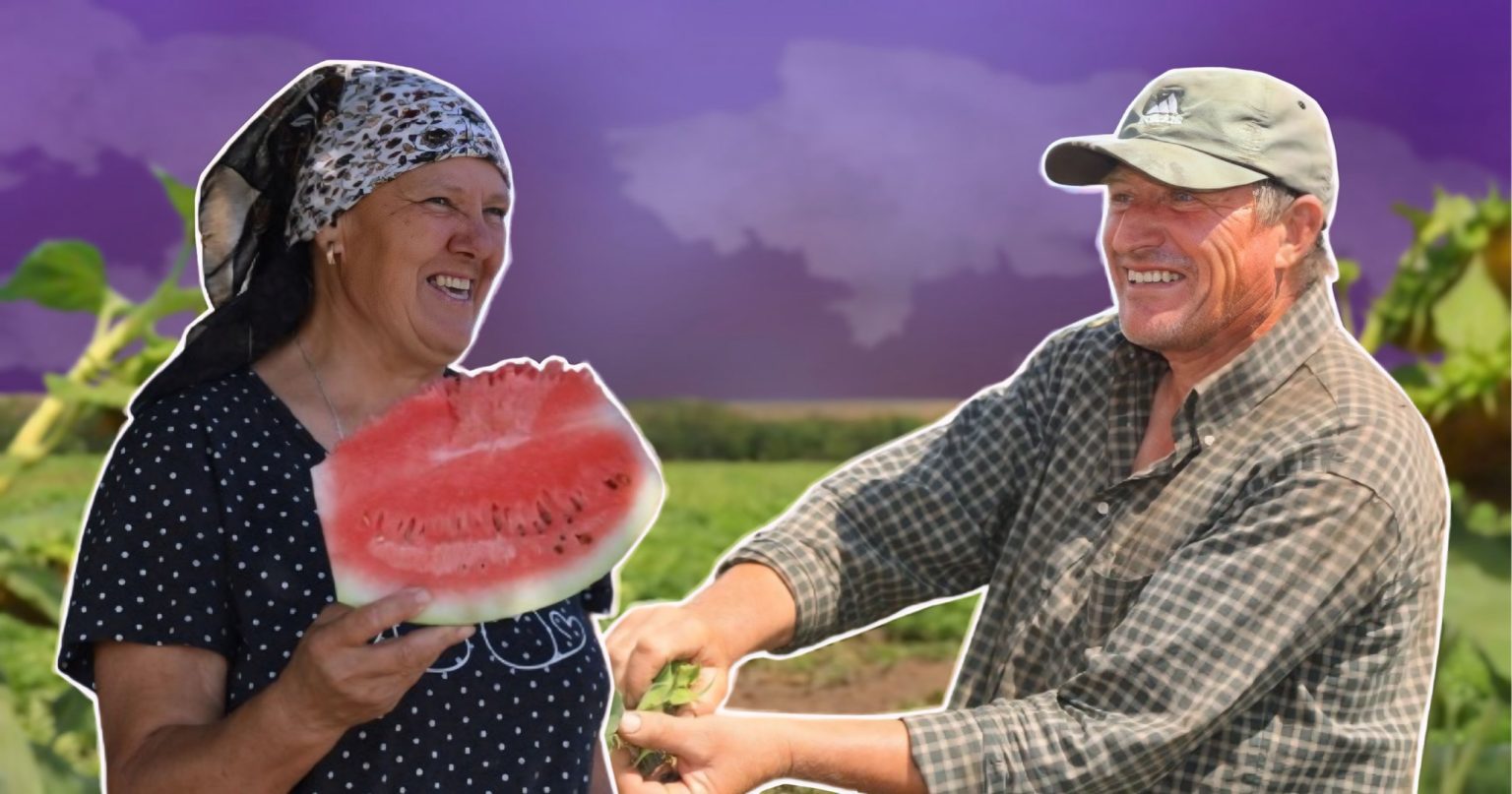“Serhiy is not here, he went to the melon field,” says Tetiana, a resident of Bilohirka, smiling.
In front of her and her husband’s yard, in the shade of a large walnut tree, huge watermelons are stacked, and scales stand nearby. While her husband is working on the field, Tetiana invites us to taste the watermelons.
“We came to Bilohirka specifically for the watermelons, and we planned this trip back in May 2023, but last year there was a bad harvest, and we tasted the bitter watermelons of Bilohirka in the fall. It’s easy to find Serhiy and Tetiana’s house, which was vandalized by the Russians, as it’s the first one on the street, and the Ukrainian flag flies above it.
Tetiana was the first villager we spoke to in the spring of 2023, during our first trip here. Since then, the village itself and the farm of the spouses have changed. With the help of volunteers, they have rebuilt a small kitchen and are gradually tidying up the yard. Only two of Serhiy’s tractors remain unchanged, standing as terrible monuments to the Russian-Ukrainian war. The farmer has been trying to repair them for two years without success, but it looks more like a ritual than an action that can bring results.
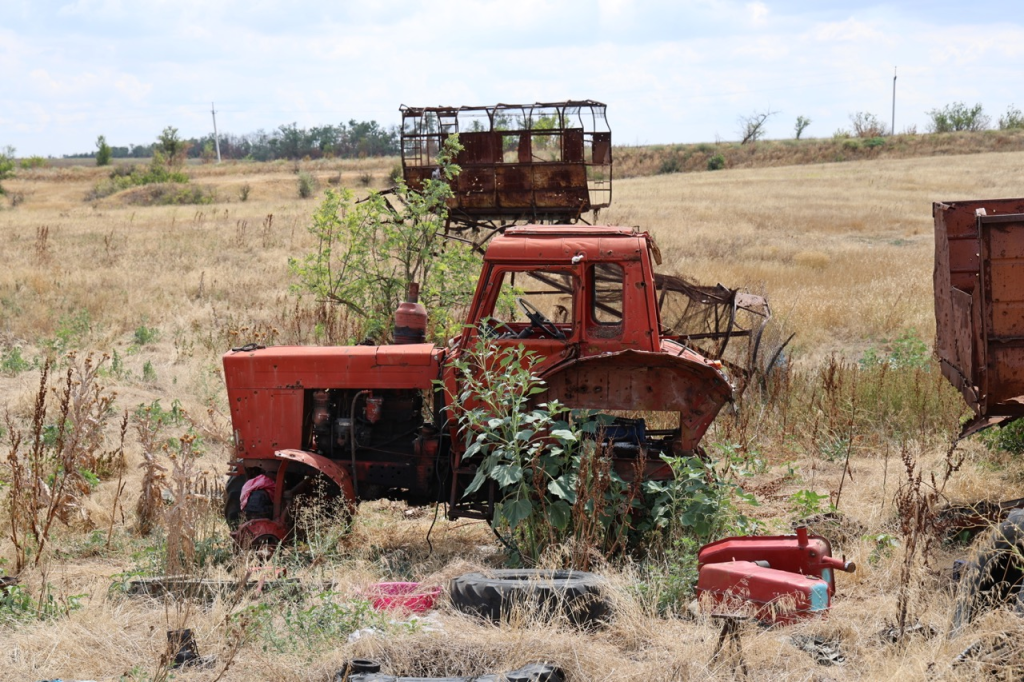
The old tractors are riddled with huge fragments of shells, mines, missiles, and maybe even bombs. All of this fell on the heads of the villagers and soldiers for six months. First, the Russians, who held it until early September 2022, and then the Ukrainians, who held back counterattacks and launched an offensive from here, towards Beryslav. As a result of the fighting, the village of Bilohirka was destroyed by 99%, but dozens of people have returned here over the past two years.
Destroyed tractors are a particular pain for Serhiy. In March, he complained to us that he had hired a tractor driver to plow a piece of field, but the tractor driver did it wrong. He paid the tractor driver, Serhiy whispered, out of his own stash.
While I’m looking at the mangled tractor, Tetiana is skillfully slicing watermelon in the Kherson way, in huge slices. Against the backdrop of the gate pierced by shrapnel, the woman smilingly hands us the watermelon. For us, who are used to the Tauride watermelon of the Kherson left bank, it is very surprising that a non-red watermelon can be so sweet.
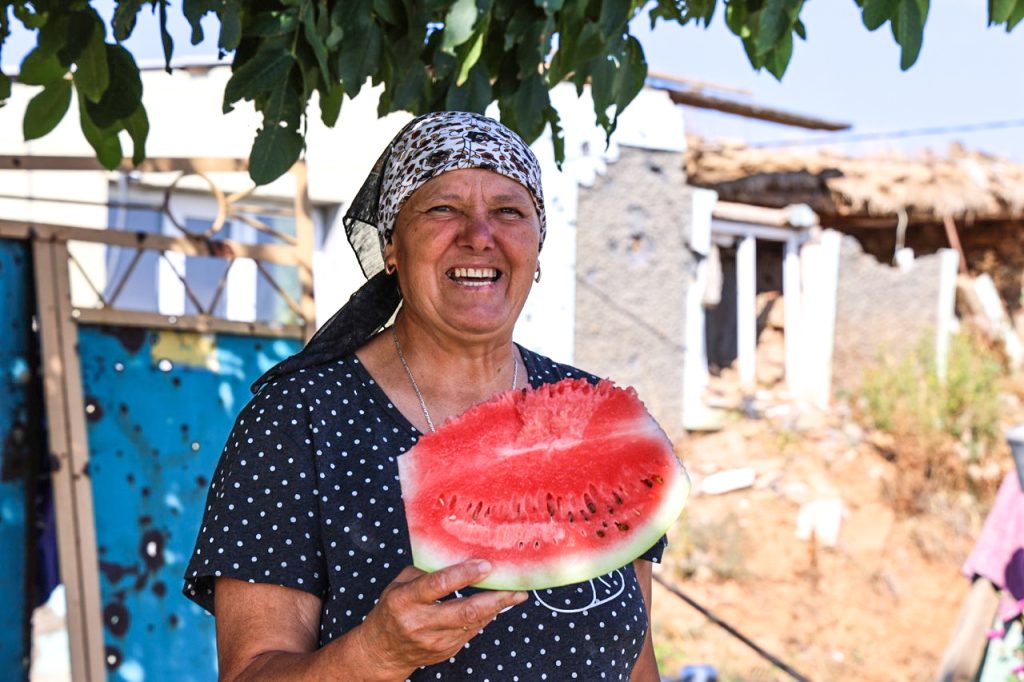
We are having a leisurely conversation about this, savoring the pink juicy flesh of a watermelon, when an old green Zhiguli turns into the village from the highway. The owner of the vintage Soviet car is a tall, smiling man in his late sixties. He is traditionally dressed in old classic suit pants that he may have worn to someone’s wedding, a cowboy shirt with the sleeves rolled up three-quarters of the way and an Abibas type baseball cap. This outfit makes Serhiy look like an American farmer, and his charisma makes him look like a congressman from Ohio.
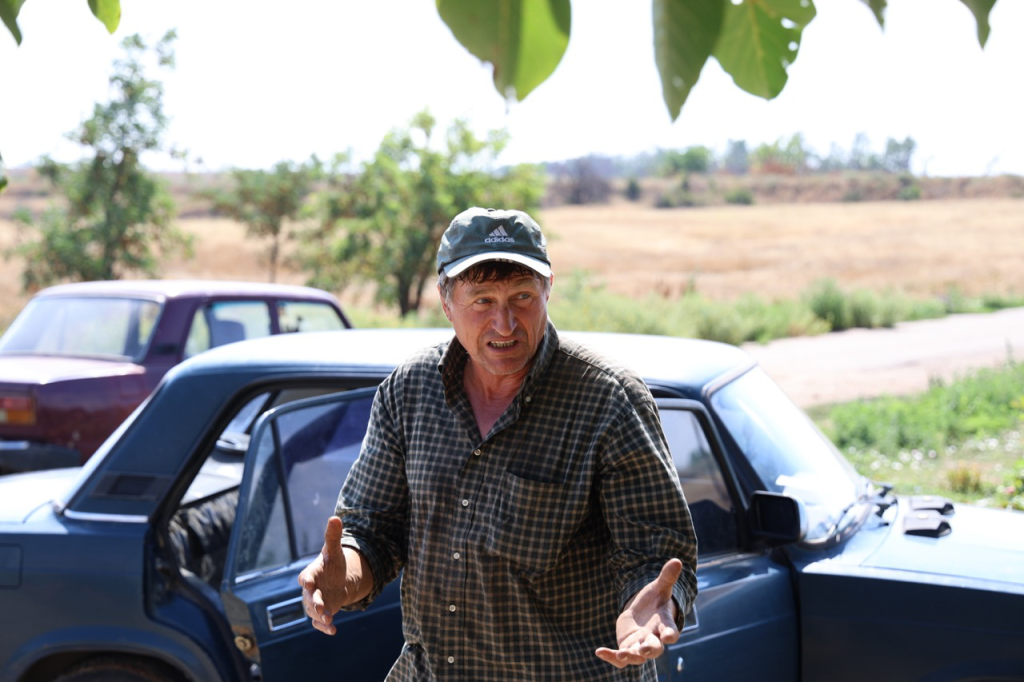
After businesslike reviewing the results of our watermelon tasting, he begins to carry the harvest in the Zhiguli under his arm.
“There is no more Bilohirka watermelon, no more. There are four of us here who grow watermelon, and I used to be the only one. So now I’m going to rename it for advertising – it will be Tanya’s watermelon. She was the one who weeded it. And Serhiy just watched. It’s my job to watch it grow,” he laughs.
Tetiana did not work alone, but with her two sisters. They weeded the huge melon field by themselves in a few days.
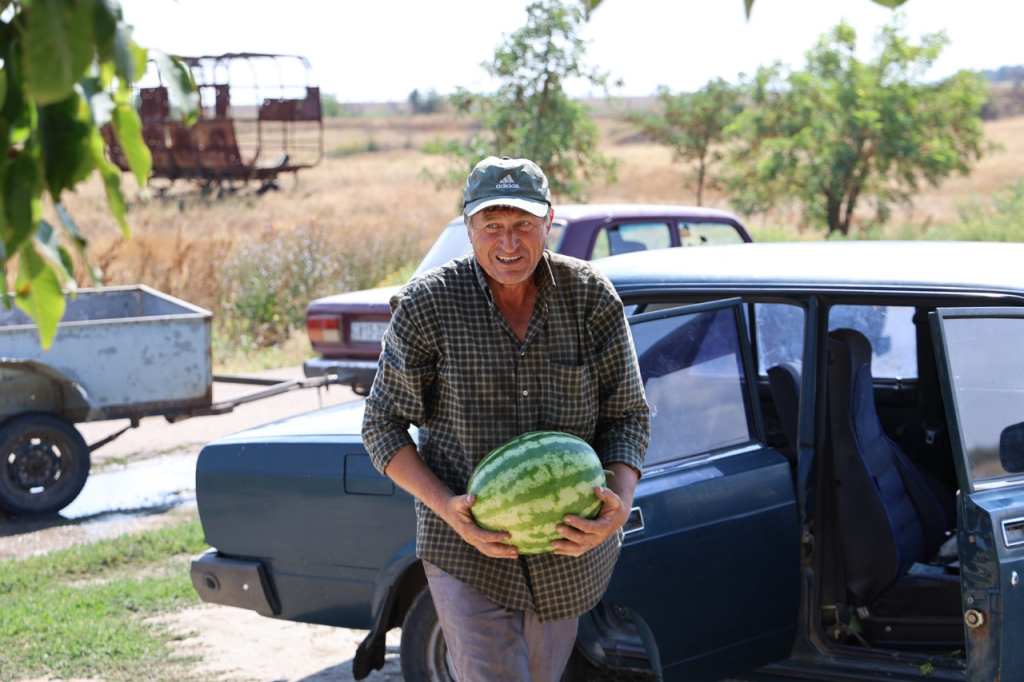
“I’m a generous person, but only a little greedy, so you know what I did? I went to the district, bought a pen and two notebooks. I wrote them letters of thanks for their good work. From the bottom of my heart! They were happy, and I was happy,” he laughs.
He adds that, in his opinion, watermelon is expensive this year – 12 hryvnias per kilogram.
“It is expensive, but diesel fuel is expensive. They can sell it cheaper if they want, but if you try to plow the melon field, diesel costs almost 50 hryvnias. Like it or not, we have to raise the price,” explains Serhiy, carrying watermelons.
He didn’t plant any melons for sale this year, but he has some in his garden, and there are some red watermelons. We go to check them out. The red watermelon from the garden behind the house is really not so sweet, and reminds us of the one in Odesa, a little bit sour. Serhiy laughs and shares the varieties of watermelons and their characteristics. He seems to know everything about watermelons and could easily write a book about it.
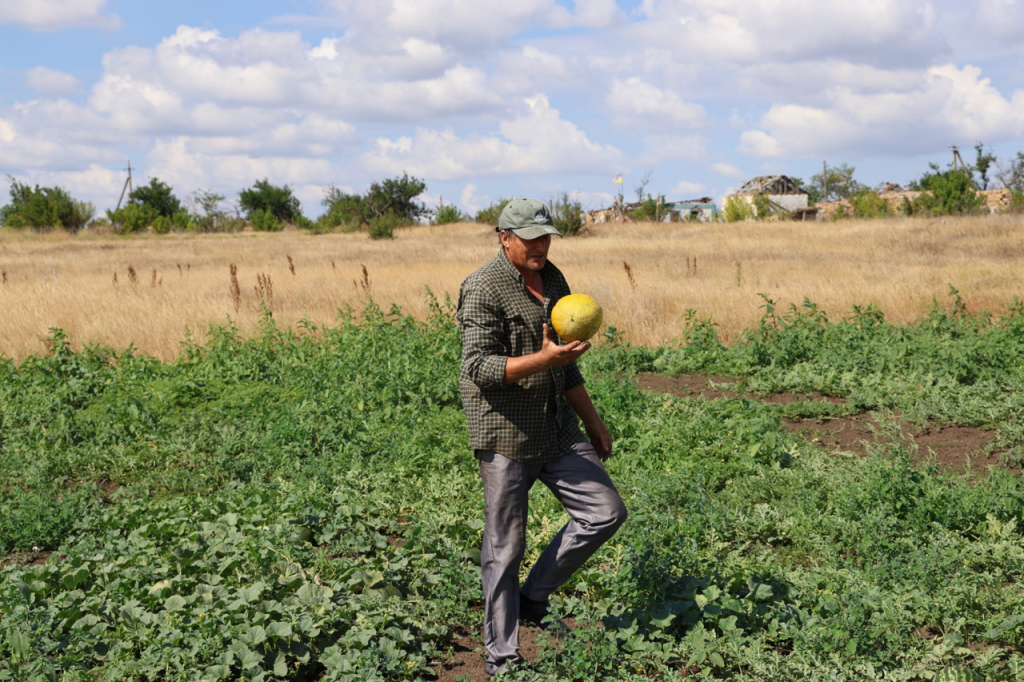
Watermelon sales are not very successful this year. Serhiy and Tetiana sell part of their harvest near their house, and part of it right on the road near the melon. But the road leading from Snihurivka to Davydiv Brid is very bad, so they try not to drive on it. In previous years, Serhiy used to sell his harvest “in the district,” that is, in Velyka Oleksandrivka, which was the district center until 2020. But even here, the tractor was his main assistant.
“In the evening, I would load the tractor trailer with watermelons and start selling in the district early in the morning. I used the tractor as an advertisement, because people see that the farmer brought it himself, so it will be cheaper and tastier. And they don’t buy much from cars, they think it’s a dealer. So I sold a trailer of watermelons until the evening. And now I don’t have a tractor, so there’s no advertising,” Serhiy says on his way to the field.
He planted it very late this year, in May. Before that, the field had not been inspected by sappers. Or rather, officially, it is still considered to be mined. Neither the military nor the State Emergency Service checked it. It was done by local self-taught deminers who clear their own and their neighbors’ fields on their own and at their own risk. It is not customary to talk much about their activities here, so we won’t either.

“I told Uncle Serhiy a long time ago that we should clear the field of mines and plant watermelons, but he was reluctant. But who else but people like him should be the first to sow? So we helped him a little bit,” explains one of the sappers, who had just stopped by the melon field to pick up a watermelon.
Serhiy smiles and looks for a ripe watermelon for him.
He refuses to clear the rest of the field, which runs from his melon almost to the village. There is nothing to cultivate it with, and he cannot afford to hire a tractor to cultivate it. He will have to pay a tax for the mined field every year, and while it is mined, taxes are not collected.
Despite the conditional clearing of mines, the field still contains dangerous equipment. In the middle of the field there is a sign “Attention! Mines”. Underneath the sign is an element of a cluster shell.

The shank of the Uragan is sticking out a little further.

“People say you’re scared? No, I’m not scared. You see a landmine, you walk around it and move on. We’re used to it,” he says, cracking young sunflower seeds.
This traditional delicacy of the Kherson steppes, which you have to pick out with your fingers from a huge sunflower that smells of oil and wind, brings you back to your childhood for a moment. Traditionally, single sunflowers are planted on melon fields, which grow and bob their huge heads above the watermelons. Serhiy smiles slyly when I tell him that I feel like I’m back in the now-occupied Stara Zburiivka.
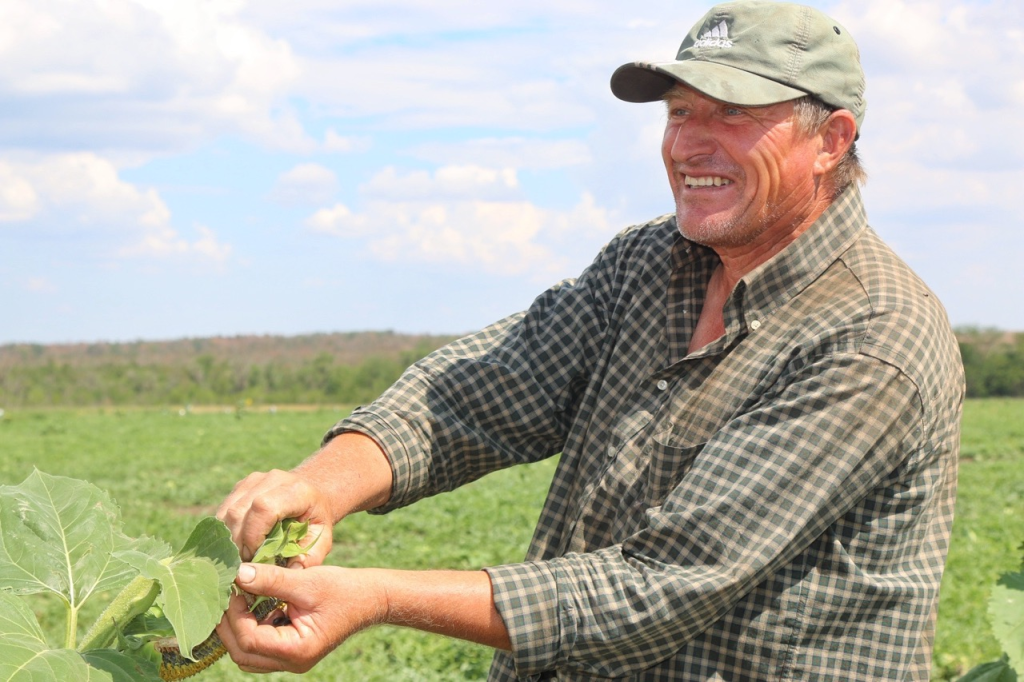
And he is openly jealous when I talk about the superiority of Holoprystan watermelon over the right-bank watermelon. Although he does not diplomatically enter into an existential dispute.
We only start arguing about IDP (internally displaced persons) payments, which have been canceled. In his opinion, it is necessary to pay money to people who have left their homes and often lost everything, while I believe that people need to socialize in new places, and payments corrupt many people. Serhiy shakes his head and says I’m wrong.
But he opposes the humanitarian aid that volunteers and charity workers have been pouring into the villages.
“They bring us pasta, and we are hardworking people, we don’t need that pasta. And they give us rations. I think we don’t need rations anymore. We are already on our land, so we have to work. And they bring me the rations “to keep you from barking, Seryozha”. I’m not a dog, I have hands,” he says sharply, but without anger.
Suddenly, he starts whistling – he has seen a stork landing on the other side of the field. Storks, hares, and roes are a disaster for the field, because they also like to eat sweet watermelons. And the ban on hunting has led to a rapid increase in the population of hares. According to the farmer, hares do a lot of damage, break a lot of watermelons, and not all of them are even eaten. A roe deer eats one and leaves.
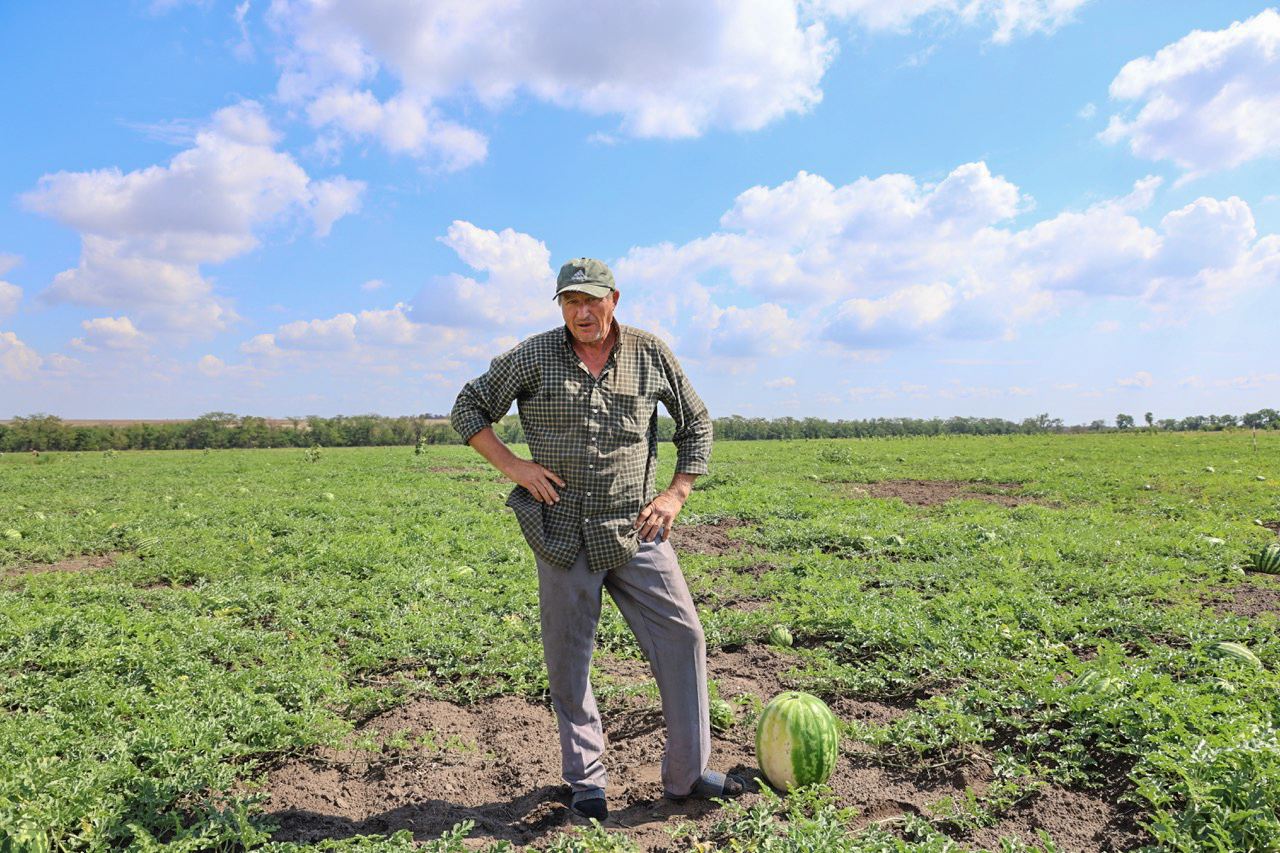
The whistle scares the stork, and it decides to fly to the river.
Serhiy begins to level the slats that mark the boundaries of different areas on the field. Instead of using a hammer, he uses an empty nose piece from a Russian rocket, as there is plenty of such stuff on the field. The fence slides easily into the wet sand. It is surprising that in the middle of the black earth right-bank steppe there is a plot of sand that the watermelon loves so much.
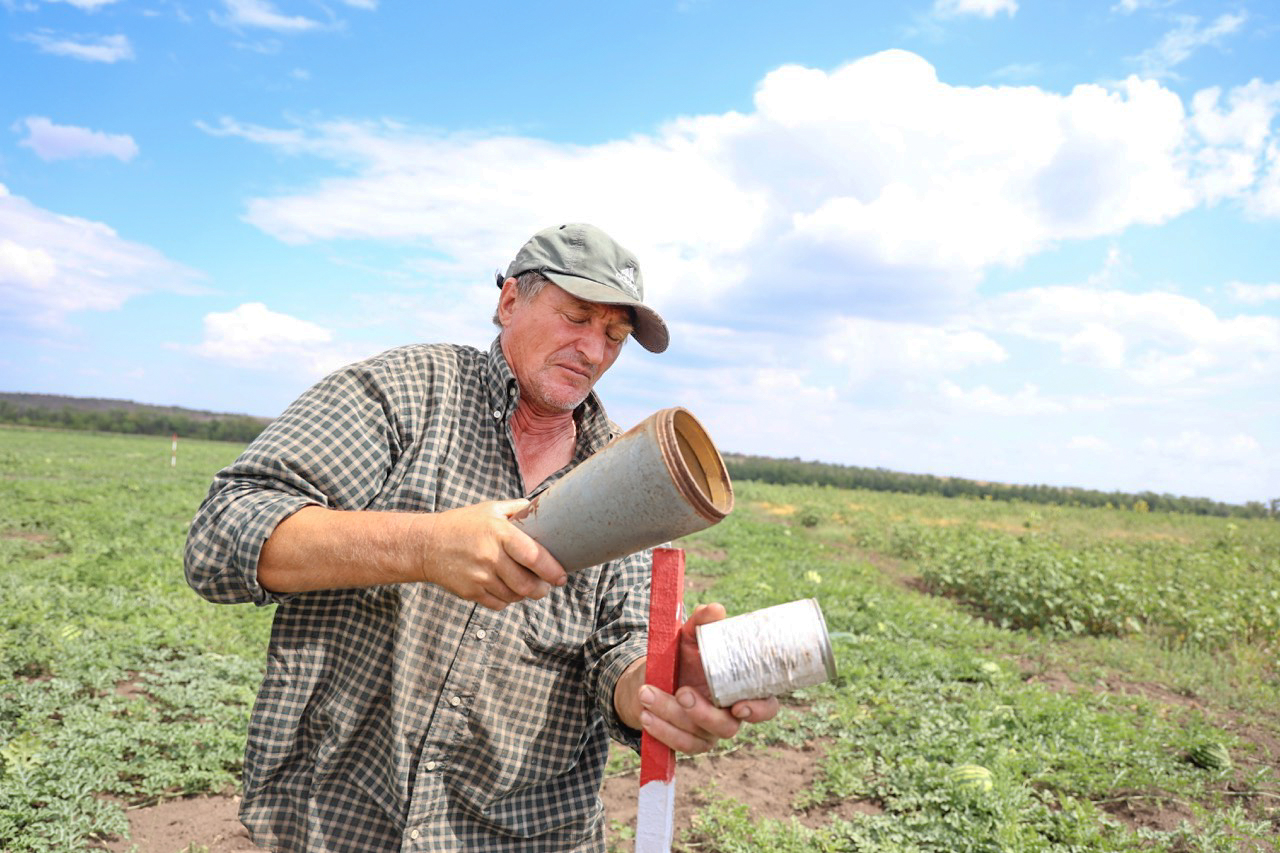
“This is the secret of my watermelons. Further away, where the black soil is, I sowed grain, and here I sow watermelons. And that’s why the watermelon is so, uh, tasty. I told you that Aunt Tanya and Uncle Serhiy have the best watermelons. You can see that my watermelons don’t bake, right? That’s because I sow them this way, and they love me. I don’t love them, they love me!” the farmer shares his secret.
Last year he planted watermelons closer to the house, and they were tasteless. Moreover, the melons were full of mines and shells. It was a miracle, he says, that no one got blown up.
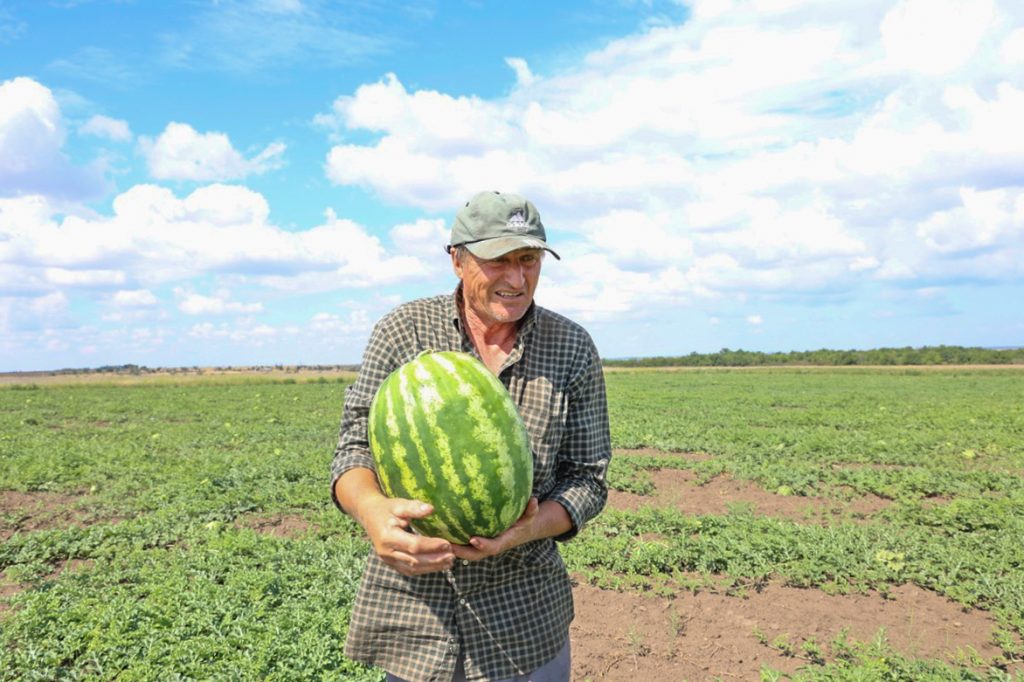
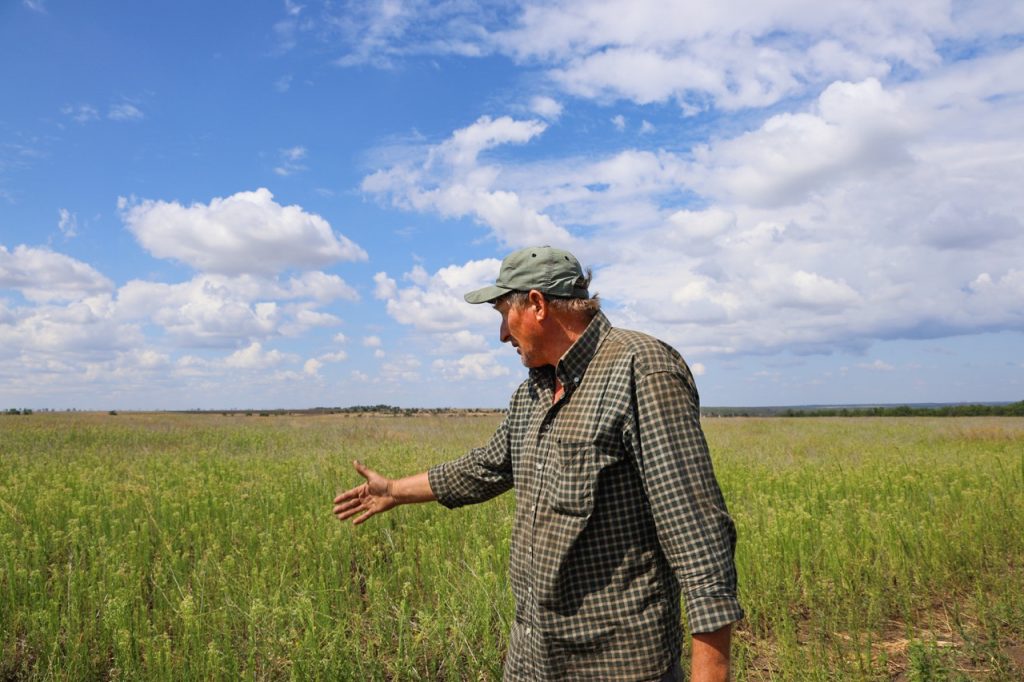
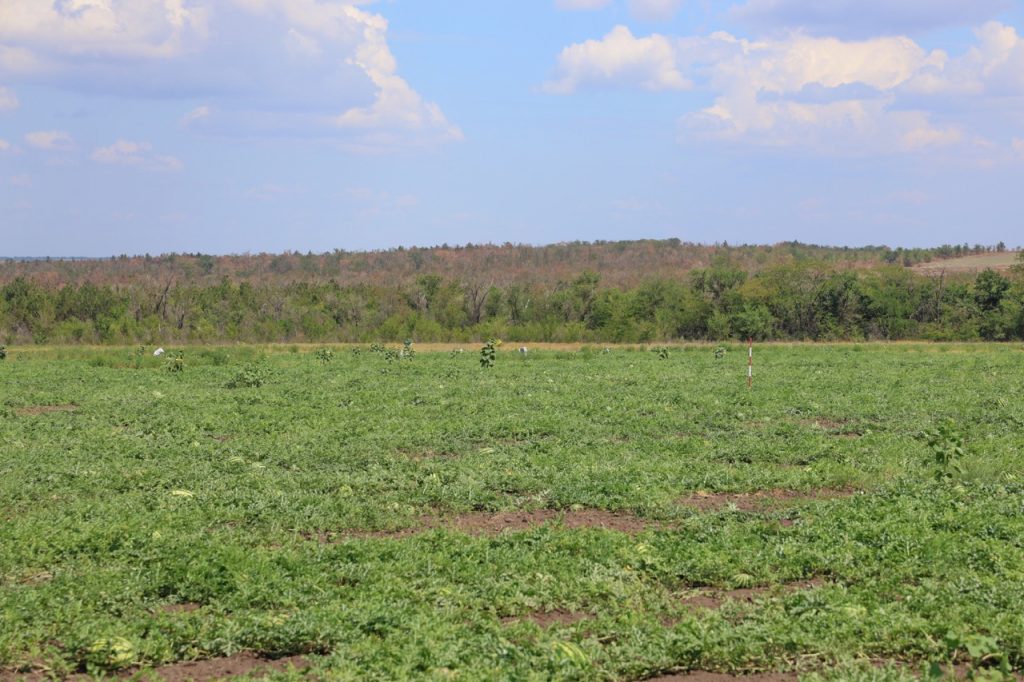
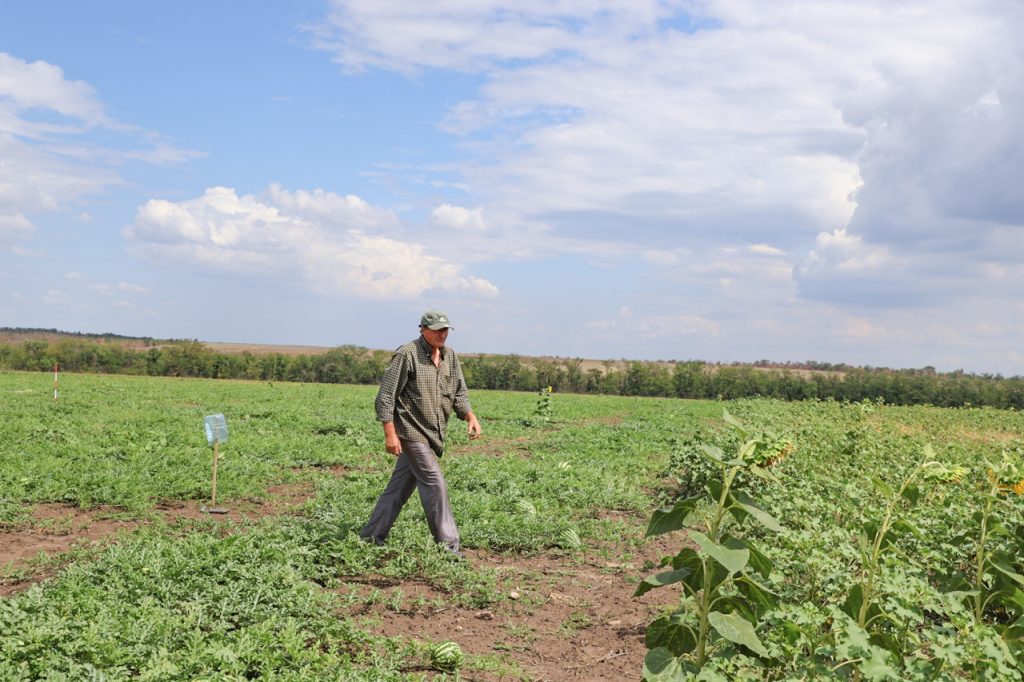
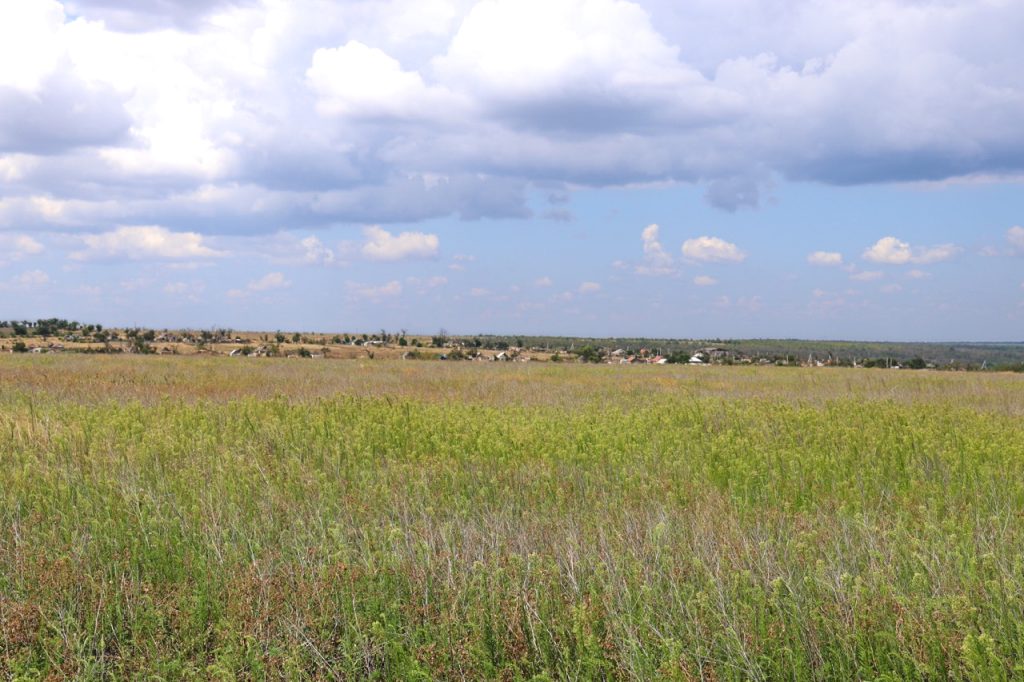
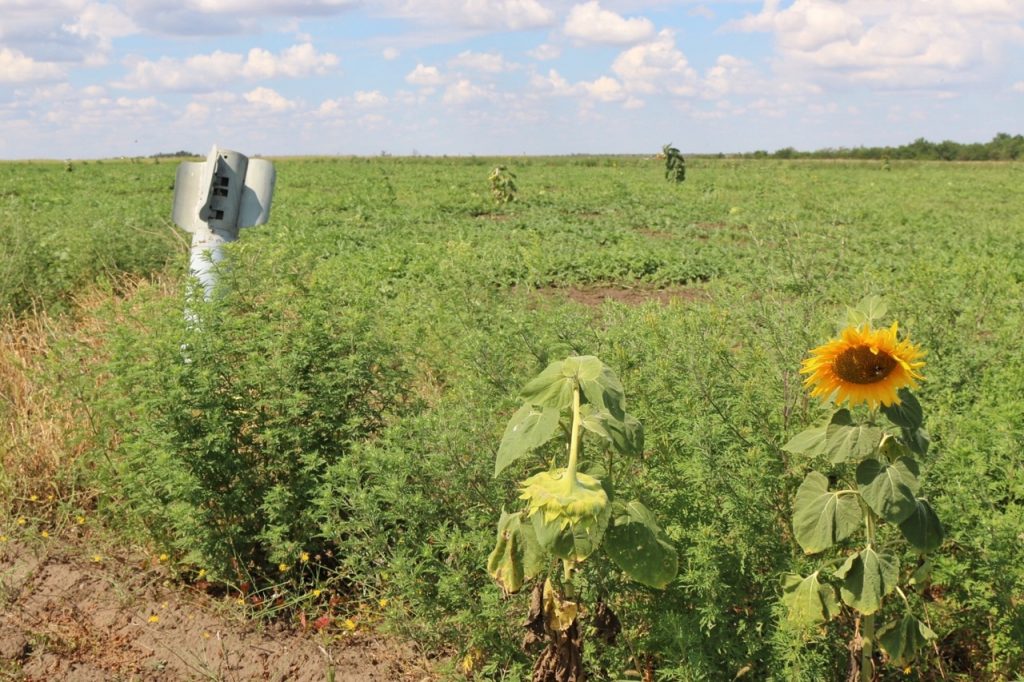
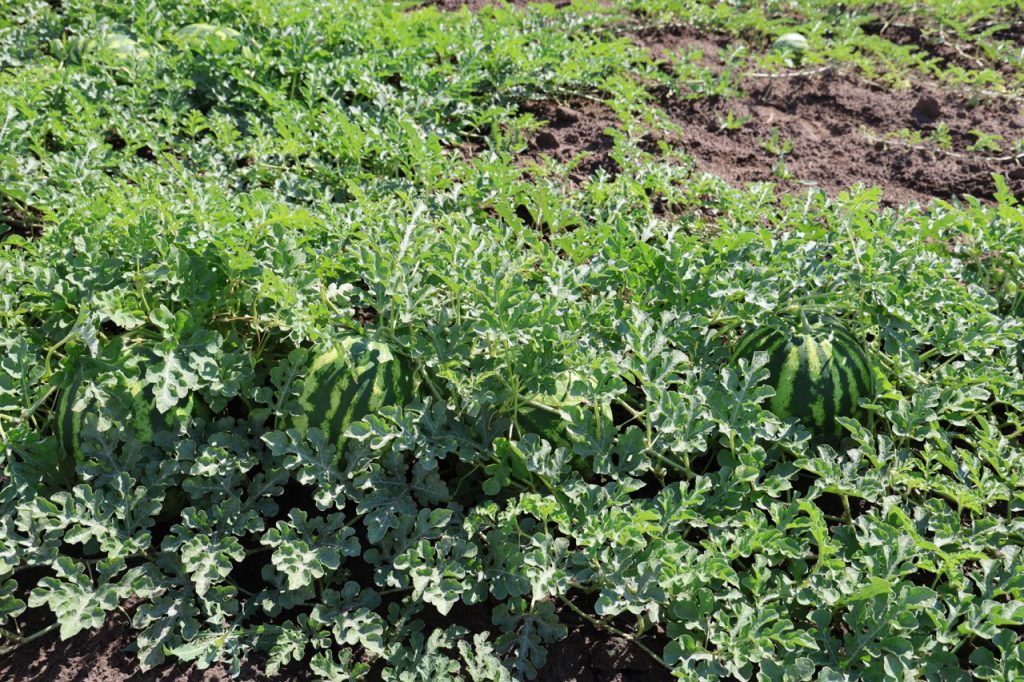
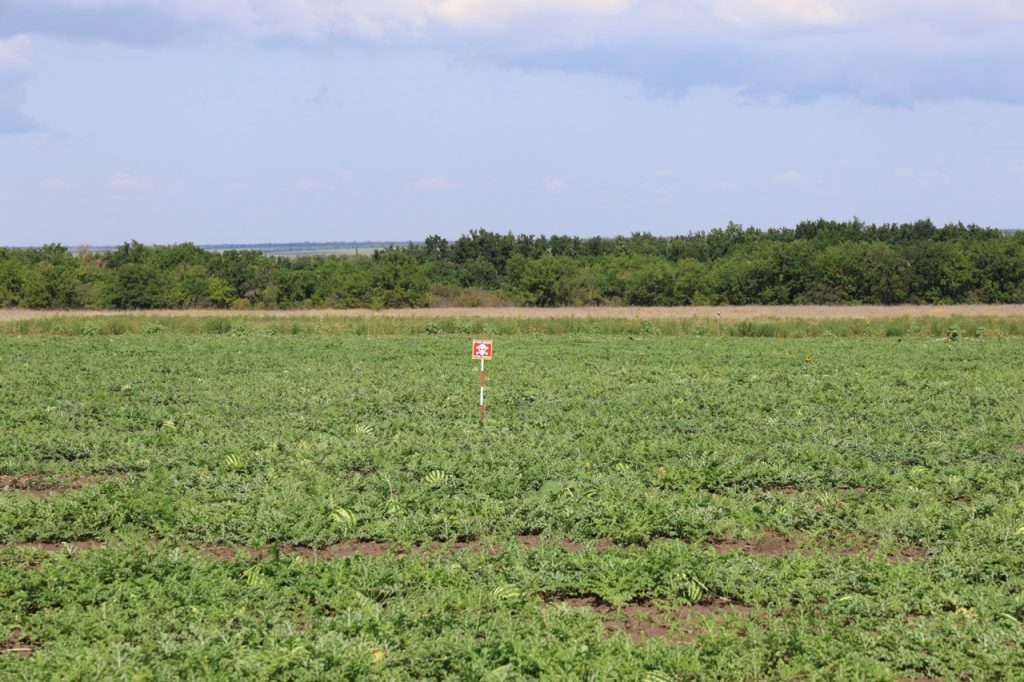
Upon returning to the village, we weigh the watermelons and fill the trunk with them. Serhiy passes one watermelon through us to the headman of Davydiv Brid, who also takes care of Bilohirka. We sit down on the path in the shade and continue our conversation.
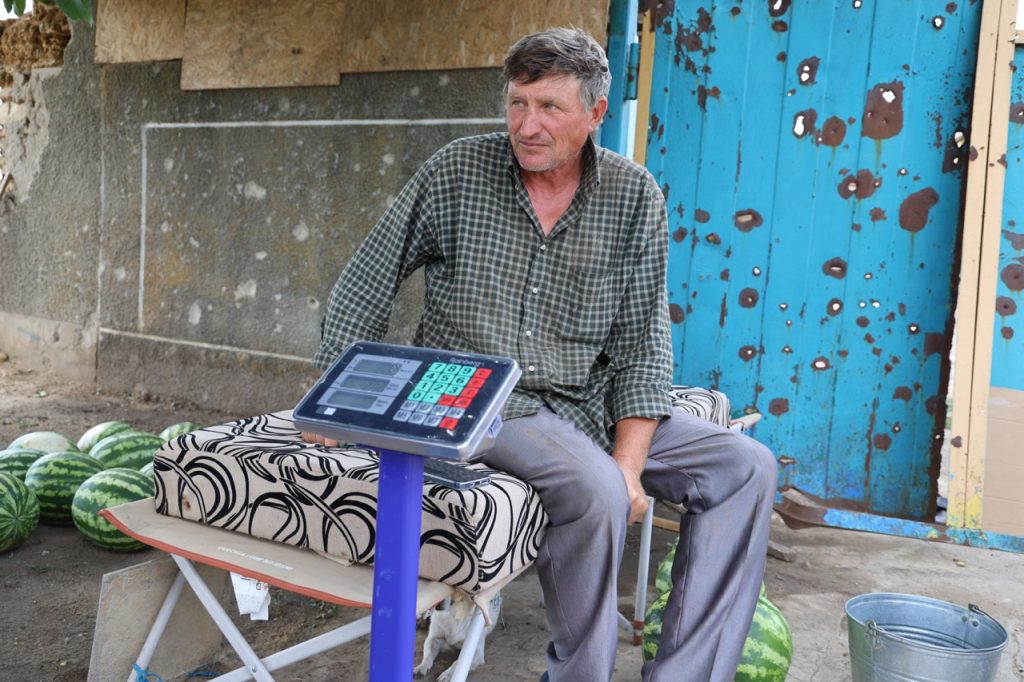
“The main thing is that the war ends, and then we will work and expand. If we make money, then we will repair the tractors, otherwise we are just crying. Everything will be fine, as long as the war is over,” Serhiy says.
His wife nods her head sadly and looks at the broken and mangled tractor.
This text is a translation of our report, which can be viewed at the link


